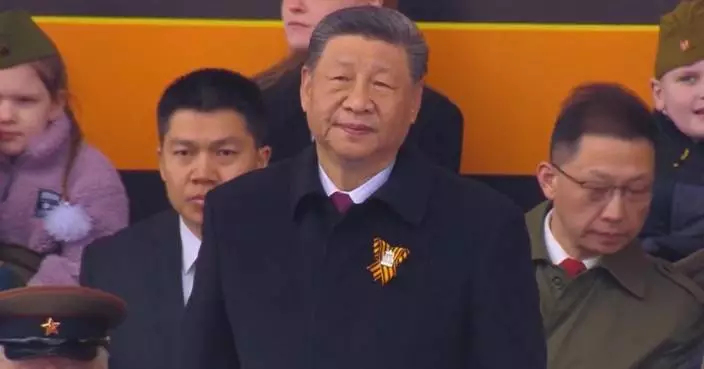China's economy witnessed steady progress in 2024, with high-quality development advancing consistently and key targets and tasks successfully achieved, said Kang Yi, director of the National Bureau of Statistics (NBS), at a press conference in Beijing on Friday
Preliminary estimates show that China's GDP reached 134.9084 trillion yuan (around 18.42 trillion U.S. dollars) in 2024, marking a 5 percent increase compared to the previous year at constant prices, Kang noted.
On a quarterly basis, the GDP growth was 5.3 percent year-on-year in the first quarter. The growth rate moderated to 4.7 percent in the second quarter and 4.6 percent in the third quarter, before rebounding to 5.4 percent in the fourth quarter.
"In 2024, facing increasing external pressures and growing internal challenges, China's economy withstood the pressure and tided over difficulties, surpassing 130 trillion yuan in total economic output for the first time. Our economic size remained firmly in the second place globally. On a global scale, China's 5-percent economic growth rate is one of the highest among major economies and China continues to be a key driver of global economic growth," Kang said.
At the press conference, Kang also shared other key economic data for the year of 2024.
Grain production reached a record high, surpassing 700 million tons for the first time. Primary energy production continued to rise, ensuring robust energy supply. Furthermore, China's advantages of having a vast market and a complete industrial system were further strengthened. In 2024, China's total retail sales of consumer goods reached 48.8 trillion yuan, and fixed asset investment hit 51.4 trillion yuan, with domestic demand still a major driving force.
The industrial structure became more optimized. In 2024, the value-added output of industrial enterprises above designated size grew by 5.8 percent year on year. Notably, the share of high-tech manufacturing and equipment manufacturing industries in total value-added output rose to 16.3 percent and 34.6 percent, respectively, up by 0.6 percentage points and 1.0 percentage points compared to the previous year.
Investment in manufacturing technological upgrades increased by 8 percent in 2024, outpacing overall investment. The pace of green and digital transformation accelerated, with key energy-consuming industries such as chemicals, building materials, and steel showing reductions in energy consumption per unit of added value. By the end of 2024, the CNC (Computer Numerical Control) rate for key processes in raw material industries exceeded 75 percent, surpassing the target set for the 14th Five-Year Plan (2021-2025) ahead of schedule.
Research and development investment intensified to 2.68 percent of the GDP in 2024, with funding for basic research up 10.5 percent. Emerging industries, such as high-end equipment manufacturing and artificial intelligence, saw positive growth trends, with new pillars of the industrial system gradually taking shape.
Meanwhile, new consumption patterns, such as online sales and instant retail, showed accelerating potential. Online retail sales of physical goods grew by 6.5 percent year on year, driving express delivery volumes to new historical highs.
In 2024, China's new-type urbanization continued to advance steadily, with the urbanization rate of the resident population reaching 67 percent by the end of the year, an increase of 0.84 percentage points from the previous year.
At the same time, China made solid strides in ensuring and improving people's livelihoods. The urban surveyed unemployment rate decreased by 0.1 percentage points compared to the previous year, and per capita disposable income increased by 5.1 percent in real terms in line with economic growth. The number of people who have shaken off poverty and are employed remained stable at over 30 million for the fourth consecutive year, while significant progress was made in public services such as education, healthcare, and elderly care.

China's economy see steady progress in 2024, with key targets, tasks achieved




















































